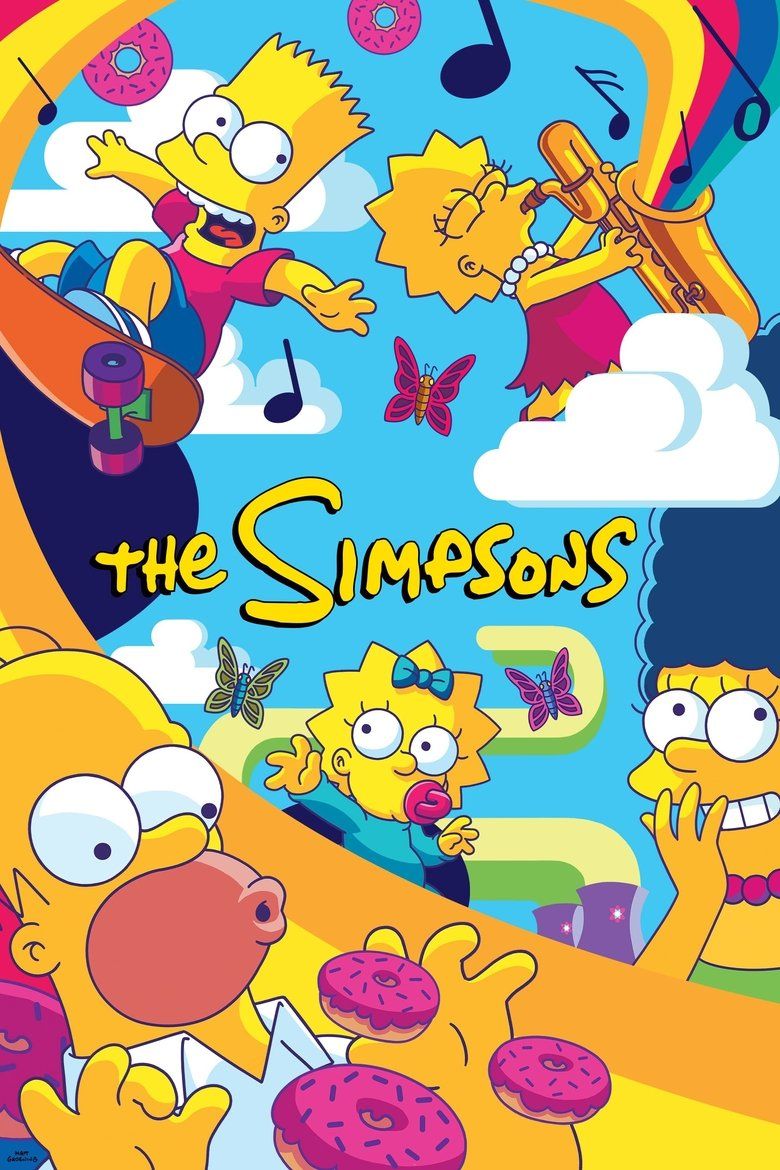The 1990s spawned some of the best TV shows of the 20th century, making the decade a defining era in the evolution of television. It wasn’t just that shows became more ambitious – it was that audiences began demanding more. From network dramas to experimental genre series, 1990s TV shows pushed boundaries and helped turn television into an art form.
Many of the best shows from this era changed what audiences expected from TV. Writers and showrunners began embracing serialized storytelling, sophisticated themes, and genre-blending approaches. Whether it was in the form of comedy, horror, sci-fi, or legal drama, the 1990s delivered groundbreaking shows that left permanent fingerprints on everything from character development to production design.
The most definitive TV shows of the 1990s are those that didn’t just dominate ratings, but reshaped the entertainment landscape and pop-culture zeitgeist of the era (and, in most cases, today too). Their influence can still be seen in today’s streaming giants and cult classics alike. These are the shows that didn’t just entertain – they altered the course of television history.
10
Twin Peaks (1990-1991)
Blurred The Line Between Television And Art In A Way No Show Had Before
David Lynch and Mark Frost’s Twin Peaks was like nothing else on television in 1990. With its surreal tone, cryptic storytelling, and offbeat characters, the mystery of who killed Laura Palmer introduced mainstream audiences to experimental television on a major network. It proved audiences could handle complexity, weirdness, and a healthy dose of nightmare fuel.
What made Twin Peaks game-changing was how it redefined what episodic TV could be. It didn’t just tell a story – it created an entire atmosphere. Agent Dale Cooper (Kyle MacLachlan), with his dream logic and cherry pie, became an icon of eccentricity. The show also laid the groundwork for modern prestige TV, especially in terms of serialized structure and visual storytelling.
Although it was canceled after two seasons, Twin Peaks became a cult phenomenon and left an indelible mark on shows like Lost, Stranger Things, and The Leftovers. It showed that television didn’t need to spoon-feed audiences – and that sometimes, the strangest stories leave the biggest impact.
9
Beverly Hills, 90210 (1990-2000)
Made Teen Dramas A Serious And Wildly Popular TV Genre
Beverly Hills, 90210 exploded onto the scene in 1990 and changed everything for teen-centered television. The show wasn’t the first to feature high school students, but it was the first to turn their lives into serialized must-watch drama. It tackled real issues – drugs, sex, eating disorders – without losing its glossy, sun-drenched appeal.
Created by Darren Star and produced by Aaron Spelling, 90210 turned Jason Priestley’s Brandon and Shannen Doherty’s Brenda into household names. However, its influence wasn’t just about fame – it was about reach. The show made network execs realize that teen audiences were not only large but loyal. That shift would lead directly to the rise of the WB and CW teen drama era.
Without 90210 paving the way for teen shows in the 1990s and beyond, there would likely be no Dawson’s Creek, The O.C., or Riverdale. It proved that young audiences could carry a primetime drama – and changed how networks developed content for years to come.
8
Charmed (1998-2006)
Proved Female-Led Genre TV Could Be Both Magical And Mainstream
At a time when genre TV was still male-dominated, Charmed brought a coven of powerful women to the forefront. The Halliwell sisters – played by Shannen Doherty, Holly Marie Combs, and Alyssa Milano (later joined by Rose McGowan) – fought demons, juggled personal lives, and did it all in stylish boots and leather pants.
However, Charmed wasn’t just supernatural fun – it was revolutionary for how it centered female empowerment in a genre that typically didn’t. The show’s mix of magic, sisterhood, and serialized storytelling made it a trailblazer for shows like Supernatural, The Vampire Diaries, and WandaVision. It didn’t shy away from romance or emotion but treated them as strengths, not weaknesses.
Running for eight seasons, Charmed became the longest-running hour-long series with female leads at the time. It quietly paved the way for more complex and central female roles in genre storytelling, proving that action, heart, and women-led narratives weren’t mutually exclusive.
7
Law & Order (1990-2010)
Redefined Procedural Storytelling For The Modern Era
Law & Order premiered in 1990, and few viewers sitting down to watch its first season realized they were witnessing the birth of a franchise juggernaut. Created by Dick Wolf, the show pioneered a “ripped from the headlines” format, blending police investigation with courtroom drama. It was a formula so effective, it’s still being replicated today – literally, in the form of spinoffs like SVU.
What made Law & Order truly groundbreaking was its commitment to realism and structure. The cast – featuring legends like Jerry Orbach (Detective Lennie Briscoe) and Sam Waterston (Jack McCoy) – delivered performances that emphasized moral complexity over melodrama. It brought a gravitas to network TV that felt fresh in a world of sitcoms and soapy dramas.
The show’s legacy goes beyond its longevity. Law & Order reshaped legal procedurals, influenced countless imitators, and normalized the idea that TV could tackle serious, often uncomfortable topics without losing viewers. It became the blueprint for prestige procedural TV, with its influence still felt decades later.
6
ER (1994-2009)
Turned Medical Dramas Into High-Stakes, Character-Driven Epics
Before hit medical dramas like Grey’s Anatomy and House, there was ER. Created by novelist Michael Crichton, the show debuted in 1994 and almost instantly became a ratings monster. Set in a fast-paced Chicago emergency room, it didn’t just feature dramatic rescues – it made the doctors’ personal lives just as compelling.
The ensemble cast – led initially by Anthony Edwards (Dr. Mark Greene) and breakout star George Clooney (Dr. Doug Ross) – anchored the show in realism and emotional weight. However, what truly set ER apart was its cinematic style. Handheld cameras, long takes, and rapid-fire dialogue made it feel urgent and immersive.
ER influenced an entire generation of medical and workplace dramas. It proved that audiences could handle intense pacing, moral ambiguity, and emotionally devastating storylines – all in the same hour. For years, it was considered must-watch TV, and its impact on serialized drama still reverberates.
5
The X-Files (1993-2002)
Brought Paranoia, Science Fiction, And Mythmaking Into The Mainstream
The X-Files premiered in 1993, and at the time, science fiction was still considered niche on network TV. But by blending conspiracy theory, paranormal mystery, and procedural investigation, the series created a hybrid format that felt new and addictive. It followed FBI agents Fox Mulder (David Duchovny) and Dana Scully (Gillian Anderson) as they uncovered government secrets and faced off against everything from aliens to ghosts.
What made The X-Files revolutionary wasn’t just its mythology – it was how it treated genre TV with respect. Creator Chris Carter built an intricate narrative world that balanced monster-of-the-week episodes with a sprawling alien conspiracy arc. Viewers were expected to pay attention, speculate, and stay invested long-term.
The show ignited a cult following, launched careers, and proved that serialized sci-fi could thrive on a major network. Its DNA is in everything from Fringe to Stranger Things, and it helped lay the groundwork for genre storytelling as prestige television. The truth wasn’t just out there – it was on primetime.
4
Seinfeld (1989-1998)
Turned Nothing Into Something And Changed TV Comedy Forever
Although Seinfeld technically debuted in 1989, its explosion in popularity during the early 1990s firmly places it among the most defining 1990s TV shows. Created by Jerry Seinfeld and Larry David, the series broke sitcom conventions by focusing on minutiae, self-absorption, and, famously, being about “nothing.”
What made Seinfeld groundbreaking was its refusal to conform. It tossed aside heartwarming endings and life lessons in favor of awkward conversations and selfish behavior. Characters like George Costanza (Jason Alexander) and Elaine Benes (Julia Louis-Dreyfus) became pop culture icons – not despite their flaws, but because of them.
Its influence on comedy is incalculable. Without Seinfeld, there’s no It’s Always Sunny in Philadelphia, Curb Your Enthusiasm, or Arrested Development. It changed what audiences expected from sitcoms – proving that clever writing, sharp observations, and unconventional storytelling could produce not just laughs, but lasting cultural impact.
3
Buffy The Vampire Slayer (1997-2003)
Elevated Teen TV And Proved Genre Could Be Emotionally Profound
Buffy the Vampire Slayer didn’t just reinvent supernatural television – it redefined what teen TV could be. Created by Joss Whedon, the series followed Buffy Summers (Sarah Michelle Gellar), a high schooler chosen to fight vampires, demons, and the forces of darkness. But beneath the action was a show that tackled identity, trauma, and growing up with surprising depth.
The genius of Buffy lay in its metaphor-rich storytelling. Episodes like “Hush” and “The Body” are still taught in film and media classes for their innovative structure and emotional resonance. It embraced serialized arcs long before it was standard and developed a mythology as complex as any prestige drama.
Buffy became a template for blending genre and character-driven drama. It paved the way for everything from Veronica Mars to The Witcher. For many, it was the first show that made genre TV feel personal – and it set the stage for the emotional complexity that defines modern fantasy and sci-fi storytelling.
2
Friends (1994-2004)
A Global Phenomenon And Redefined The Modern Sitcom
When Friends premiered in 1994, it captured lightning in a bottle. The chemistry between the six leads – Jennifer Aniston, Courteney Cox, Lisa Kudrow, Matt LeBlanc, Matthew Perry, and David Schwimmer – made every coffee shop chat feel like a cultural event. However, it wasn’t just the jokes – it was the sense of connection that made Friends so iconic.
Unlike many sitcoms before it, Friends blended ongoing storylines with laugh-out-loud humor. Ross and Rachel’s will-they-won’t-they arc became legendary, and characters evolved in real time across seasons. It was sleek, emotional, and aspirational – particularly in how it portrayed twentysomethings navigating life, love, and rent in New York City.
Its influence is massive: How I Met Your Mother, New Girl, The Big Bang Theory, and countless others owe Friends a debt. It was the ultimate comfort TV – but it also proved that sitcoms could be stylish, serialized, and globally resonant.
1
The Simpsons (1989-Present)
Reshaped Comedy, Animation, And Pop Culture As We Know It

The Simpsons
- Release Date
-
December 17, 1989
- Network
-
FOX
- Showrunner
-
Al Jean
-

Homer Simpson / Abe Simpson / Barney Gumble / Krusty (voice)
-

Marge Simpson / Patty Bouvier / Selma Bouvier (voice)
Though it technically debuted in 1989, The Simpsons quickly defined 1990s TV and became the decade’s most important cultural force. Matt Groening’s animated series wasn’t just a satire of family life – it was a biting, hilarious, and endlessly referential critique of American culture, politics, and television itself.
Its shadow looms large over all of modern television
Characters like Homer (voiced by Dan Castellaneta), Marge (Julie Kavner), Bart (Nancy Cartwright), and Lisa (Yeardley Smith) became instantly recognizable, while the writing pushed the boundaries of what animated TV could do. Episodes like “Marge vs. the Monorail” and “Homer’s Phobia” didn’t just entertain – they sparked conversations and won awards.
The Simpsons changed the rules for animation, paving the way for South Park, Family Guy, Futurama, and more. It proved that cartoons weren’t just for kids – and that comedy could be sharp, smart, and scathing, all in the same breath. Its shadow looms large over all of modern television, and its place as the most influential 1990s TV show is hard to argue against.



